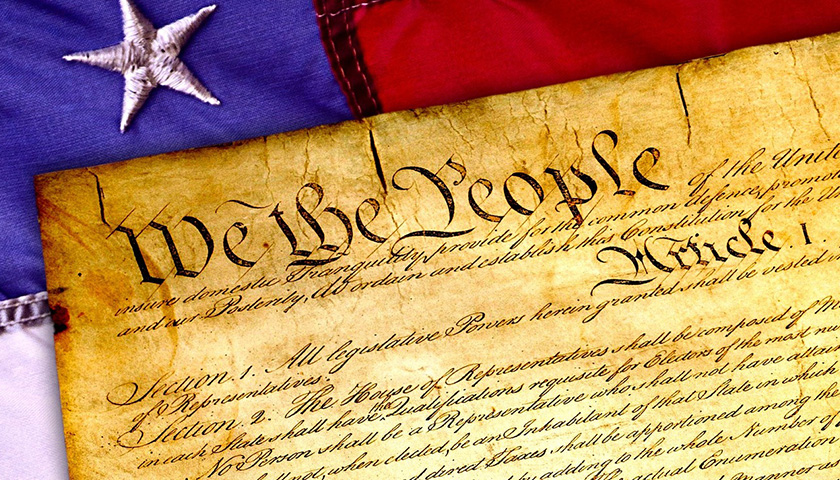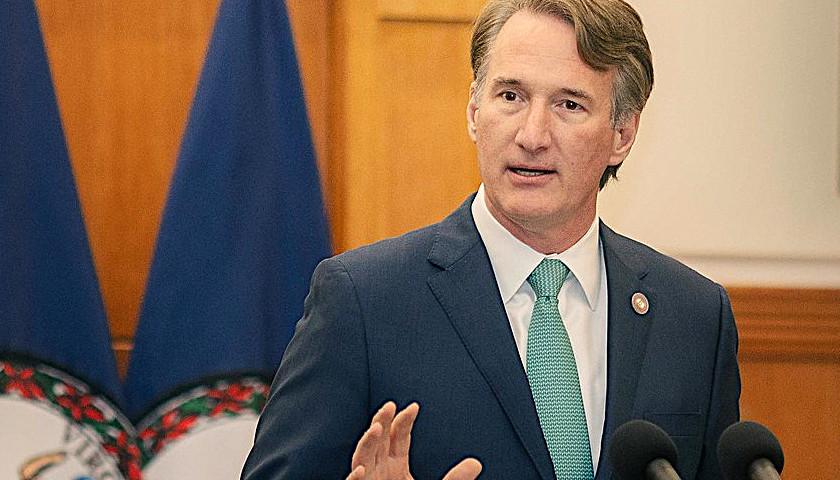In an interview on The Tennessee Star Report Michael Patrick Leahy – live broadcast Friday morning on Nashville’s Talk Radio 98.3 and 1510 WLAC weekdays from 5:00 am to 8:00 am – Leahy was live from Washington, D.C. and spoke with Dale Wilcox, Executive Director, and General Counsel for the Immigration Law Reform Institute.
Leahy and Wilcox discussed how a growing trend has emerged in the United States where illegal aliens are receiving preferential treatment in the rule of law. Wilcox cited that there are certain special councilmen who are getting “sweetheart deals” for aliens in order to prevent them from being deported.
Near the middle of the segment, the men talked about the discontent that American taxpayers are feeling about being the ones to carry the world on their shoulders by paying for illegal immigrant education and social services.
Leahy: We are joined now by Dale Wilcox, the executive director and general counsel for the Immigration Reform Institute. Welcome to WLAC talk radio 98.3 and 1510 Dale.
Wilcox: Thanks for having me.
Leahy: So tell us about the Immigration Reform Law Institute. You’ve done some work in Nashville. Tell us what your latest activities are.
Wilcox: Yeah sure. My organization principally is a not-for-profit law firm, and we’ve been very busy lately. Immigration is the President’s keystone issue and it seems that every time he breathes he’s being sued. We’re tracking more than 400 cases nationally and involved in the major cases.
We were involved in the travel ban case and the DACA case before the Supreme Court right now. We’re involved in the asylum case that the Supreme Court just the injunction 7-2 about 2 weeks.
Leahy: Congratulations. And what was interesting to me in that was that the two Kagan and Breyer were in the majority and in the minority was Ruth Bader Ginsberg and Sotomayor. That was very significant I thought.
Wilcox: I think so. It telegraphs of how they’re going to rule on the merits in this case. It looks very good for the President. It’s an important policy because as everyone knows we have a problem at the border and especially people claiming persecution in their home country to obtain asylum.
They say the magic words and are released into the interior and are never seen again. And those that show up the numbers overwhelmingly show that they’re economic migrants and not eligible for asylum.
Leahy: My sense is just looking at this from afar that 99% percent of these asylum seekers are economic.
Wilcox: I think the actual statistic is maybe 11% approval rate that actually has an asylum claim.
Leahy: Exactly. No surprise there. I suppose you can’t really blame them for wanting to better their lives economically. But there’s a rule of law.
Wilcox: Well right, right. And there are four million people who are in the backlog who filed actual applications to immigrate to the United States.
Leahy: They followed the rules.
Wilcox: They followed the rules and paid the fees they’re waiting for their number to come up and yet you have people cutting in line. Like you, I feel bad for them if they’re in a bad economic situation but you can’t assimilate the entire world.
Leahy: There are six billion people in bad economic situations and there’s 320 million of us. What are you going to do? You get the impression sometimes that the American taxpayer’s job according to everybody else in the world is to feed the rest of the world and provide the services.
Wilcox: Right.
Leahy: Yeah, that’s a bit of a problem isn’t?
Wilcox: It is a problem. The American taxpayer doesn’t realize how much immigration affects their lives. Guess what illegal immigration and legal immigration numbers that are too high affects you. Housing costs.
If housing is scarce, prices go up. So same thing with commuting. Same thing with taxes. You’re paying for your kids to go to school because of prior Supreme Court rulings. Even illegal alien kids have a right to K-12 free education.
Leahy: According to the Supreme Court ruling. If you think about that, that’s a lot of money.
Wilcox: That’s a lot of money. Actually that’s the lion share of the costs. The billions every year of dollars of taxpayers have to foot the bill. Educating their kids is the lion share of the cost.
Leahy: I think you have a new press release out. Tell us what the latest news is from the Immigration Reform Law Institute of which you Dale Wilcox are the Executive Director and General Counsel.
Wilcox: Yeah. We’ve been digging into so-called sanctuary cities, counties, and states.
Leahy: And in Nashville, you know that story and issue well.
Wilcox: Yes, and we’ve been involved actually down there. Sanctuary ordinance has been bounced around for quite some time. It was being considered by the council down there.
Leahy: Last year.
Wilcox: And we filed a brief in a federal case that was brought by an alien who was detained by Sheriff Hall. And we found a brief and the city attorney got their hands on the brief. And the city attorney used that to quash the attempt to pass a sanctuary ordinance in Nashville.
Leahy: And the Metro Council.
Wilcox: Yes.
Leahy: But you know we just had an election and John Cooper won and defeated the incumbent Mayor David Briley in a blowout 70% to 30%. David Briley had issued an executive order a week and a half before the election. Your nodding your head. You know about this.
Wilcox: Yes.
Leahy: The sense is we’re not going to comply with the state or federal law on this issue. John Cooper has said words that say we’re not going to be a sanctuary city but has not come out and said we will rescind that executive order. We’re pushing to find out if he will.
Wilcox: It’s amazing how these politicians continue to thread the needle. It depends on what crowd their speaking too. (Chuckles)
Leahy: Exactly. So you’re the latest news, tell us about that in the press release.
Wilcox: We have been digging into sanctuary cites around the country and specifically we’ve used public records and laws to find out who cooperating with the federal government immigration authorities. And we’ve put together the bottom 10 list of non-cooperative sanctuary cities in the country.
Leahy: The least cooperative cities. OK. Let’s go through the list.
Wilcox: 1 .2 .3. People wouldn’t be surprised to find out that they are the home cities of Pelosi, AOC, and Ilhan Omar. (Chuckles)
Leahy: I’m shocked.
Wilcox: So San Francisco, California is number one. Most people are familiar with San Francisco Kate Steinle, you all remember that lady who was shot by an illegal alien.
Wilcox: And he got off.
Leahy: Even the gun possession charge the Supreme Court there overturned his conviction.
Wilcox: California Supreme Court and the Court of Appeals because the judge failed to allow jury instruction on whether he actually possessed the gun that he shot her with. (Laughs)
Leahy: He shot her with a gun he didn’t possess at the time.
Wilcox: His argument was that he picked up the rag and the gun was in the rag.
Leahy: And the rag shot her.
Wilcox: And he didn’t know the gun was in the rag.
Leahy: She’s dead and been dead and he doesn’t possess the gun. OK. Number one San Francisco.
Wilcox: Number two, New York City.
Leahy: Number three, Ilhan Omar’s hometown.
Wilcox: Minneapolis.
Leahy: Actually not hometown, adopted hometown because she’s from Somalia.
Wilcox: Yes. Which is a hotbed of terrorism right now.
Leahy: Minneapolis is?
Wilcox: Yes. We’ve had more than 45 individuals here recently who have left to fight for ISIS come out of there more than any other city in the country.
Leahy: It’s the largest Somali refugee population in the United States. And shockingly they are sympathetic to ISIS. Who would have thought that?
Wilcox: Imagine that.
Leahy: Imagine that. (Chuckles)
Wilcox: There are actually over 9,000 pending orders of removal. Somali’s have already had their day in court and ICE has ordered them out of the country and they’re still hiding out.
Leahy: Philadelphia.
Wilcox: Philadelphia, Pennsylvania. No surprise there. The Mayor we’ve seen him dance on television when he won his court case against Trump who was trying to withhold funds from Philadelphia, grants because they weren’t cooperating with federal immigration authorities.
Philadelphia is particularly bad because they have this District Attorney there who has a special council in his office works ‘sweetheart deals’ for non-citizens to lower their charges so that they won’t get deported.
Leahy: This is a theme that non-citizens get better treatment under the law in these sanctuary cities than citizens.
Wilcox: Yes. Yes. and we’re seeing this around the country.
Leahy: Now, where is that in the constitution?
Wilcox: It’s not. There’s this little clause, amendment. It’s called equal protection, the 14th amendment. You’re not supposed to give better treatment to anyone and everyone’s supposed to be equal under the law.
Leahy: The last 5-10 we’ve got one minute left.
Wilcox: Seattle, Washington. They’re a leader in sanctuary policies been around for a long time. Chicago, Illinois, number six. We have a tie for number seven, Montgomery County, Maryland, and Fairfax Count,y Virginia.
Leahy: Suburbs of Washington.
Wilcox: Suburbs of Washington. And number eight is Prince Georges County in Maryland. Another suburb of Washington D.C. Boston, Massachusetts number nine. And Santa Clara, California.
Leahy: That’s in San Jose the county there?
Wilcox: Yes.
Leahy: So Nashville didn’t make the top ten but I have a sense that it might be edging up towards the top ten.
Wilcox: Well you know, you have a great state law.
Leahy: Yeah, the state law is great. But the city law problematic. Dale Wilcox the Executive Director at Immigration of Reform Law Institute. Dale thanks so much for joining us.
Listen to the full hour:
– – –
Tune in weekdays from 5:00 – 8:00 am to the Tennessee Star Report with Michael Patrick Leahy on Talk Radio 98.3 FM WLAC 1510. Listen online at iHeart Radio.





